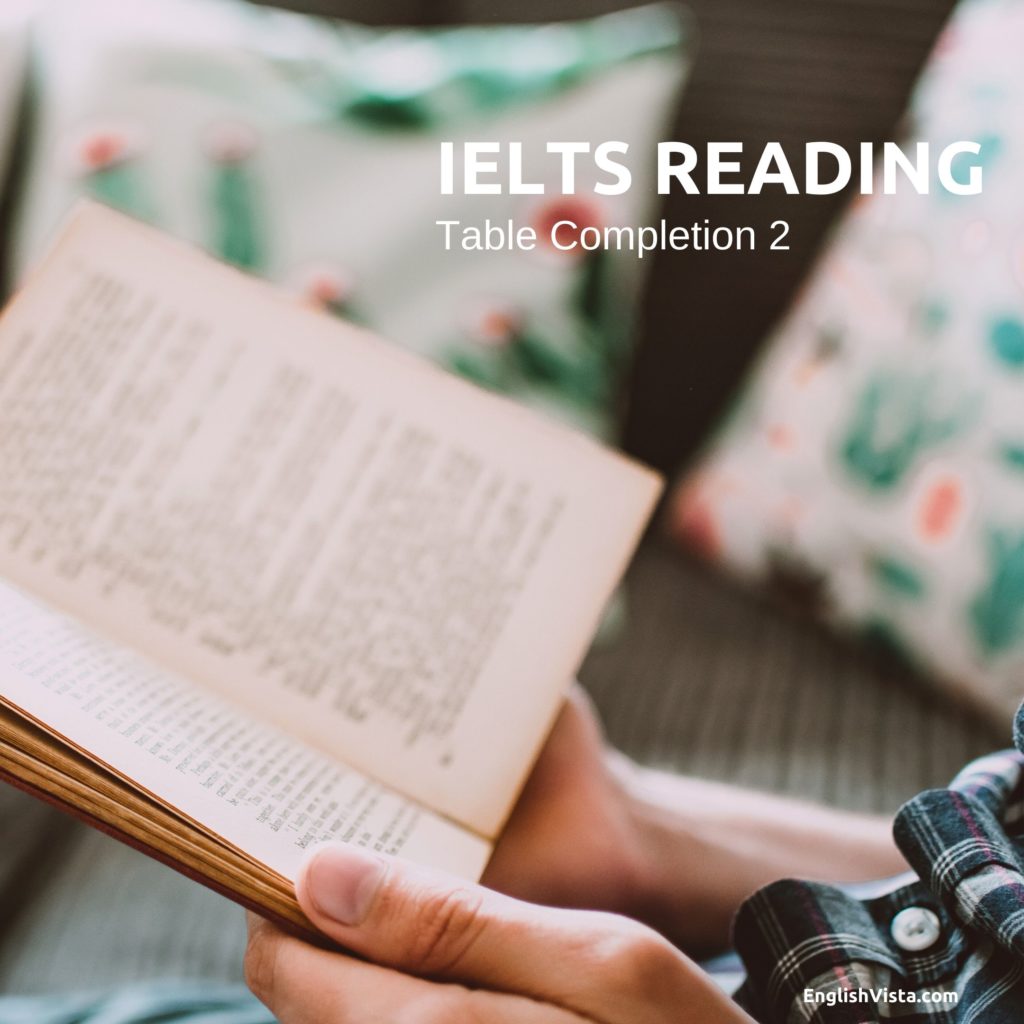
In the IELTS Reading table completion task, you must fill in a table using words from the reading passage that you have been provided with. To do this, you must ensure that you comprehend the details of the text, that you can locate information in the reading text and that you choose the correct words.
Bilingual People Can Switch Between Different Personalities
Let’s start with the fact that there are three types of bilingual (or multilingual) people:
- Compound bilinguals. These are people who use two or more languages from their birth and as a result, have several linguistic codes simultaneously.
- Coordinate bilinguals. These are people who were speaking a single language at birth but learned a second one during the early stages of development (teenage to mid-twenties). As a result, they can easily shift between linguistic codes but there’s a dominant ‘native’ one.
- Subordinate bilinguals. These are people who didn’t speak a second language to the later stages of life. After learning it in the adult age, they still have a single linguistic code, and filter the ‘alien’ language through it.
Timing and conditions for those types may be individual but that’s highly unlikely that you will become a compound bilingual by learning a second language at the age of 40.
Compound and Coordinate bilinguals are prone to have different personalities for every language they know. It’s possible because in the process of learning their brain is still very plastic due to the young age, so they use a lot of their right hemisphere — which is primarily in charge of emotional perception. It means that they acquire an emotional connection with a language and develop their own distinct character in it, not just learn a set of words and grammar rules. Every language has its own peculiar tones and shades, so by matching your persona with the nature of the language you simply go through the process of adaptation.
Source: https://medium.com/@dgrybach/bilingual-people-can-switch-between-different-personalities-5d012c8b3e4
Question
Complete the table below with information from the passage above. Choose no more than 4 words to fill in for each answer. Write the answers in the boxes below.
 Key Vocabulary:
Key Vocabulary:
- linguistic: Connected with language or the study of language.
- simultaneously: Happening or being done at exactly the same time.
- shift: To slightly move or change from one position or direction to another.
- dominant: More important, strong, or noticeable.
- prone: Likely to suffer from, do, or experience something unpleasant or regrettable.
- perception: A belief or opinion, often held by many people and based on how things seem.
- acquire: To get something.
- peculiar: Unusual and strange, sometimes in an unpleasant way.
- persona: The particular type of character that a person seems to have and that is often different from their real or private character.
- adaptation: The process of changing to suit different conditions.
Answers

